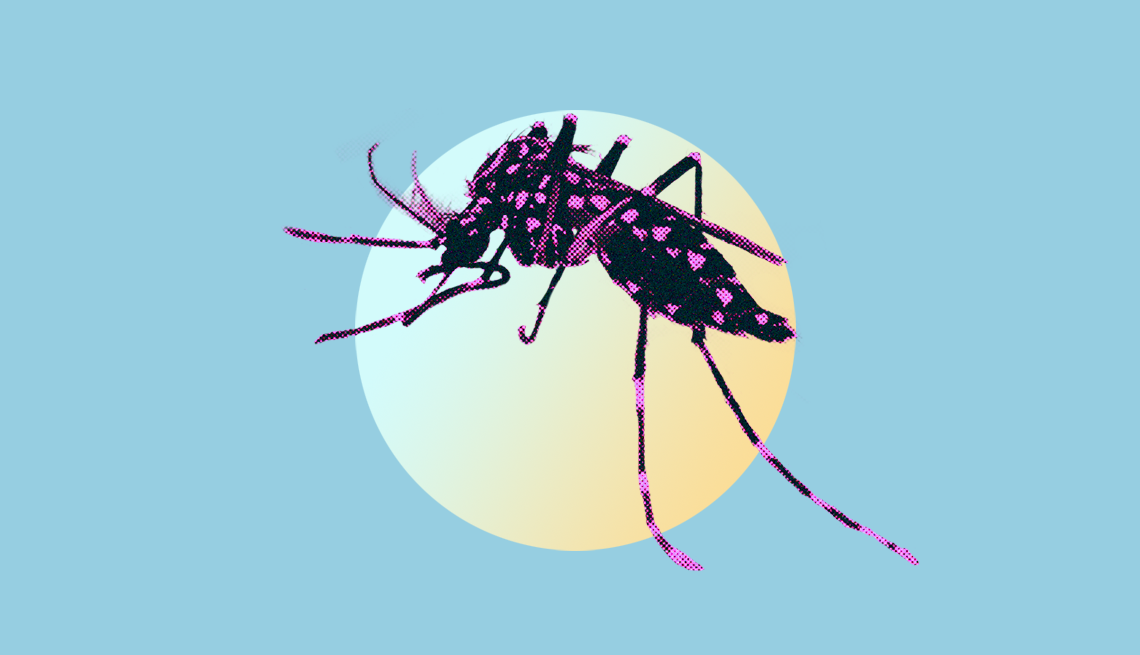AARP Hearing Center


Cases of West Nile virus have been reported in the majority of U.S. states so far this year, and at least three deaths have been reported. The news may be leaving some people to wonder whether the mosquito-borne disease is yet another thing to add to their long list of health worries — especially while mosquito season is going strong.
There’s no need for people to be fearful, says Robert H. Hopkins Jr., M.D., medical director of the National Foundation for Infectious Diseases. That said, it’s a good idea to take a few precautions and to prevent mosquito bites if you can.
What is West Nile virus?
West Nile virus is the most common mosquito-borne disease in the continental U.S., according to the Centers for Disease Control and Prevention (CDC). As many as 9,862 cases are reported each year; the median is 2,205. The vast majority (94 percent) of these occur from July through September.
As of Aug. 27, there have been 289 reported cases this year, though that’s probably “a major underestimation,” Hopkins says, since many cases don’t cause symptoms and likely go undiagnosed.
Though its geographic reach is widespread — 33 states have reported cases in 2024 — the Great Plains and Western states are more likely to have a higher incidence of infections, the U.S. Department of Health and Human Services (HSS) says.
“And really, in the big scheme of things, mosquito-borne illnesses are likely to be more of a challenge for us as we continue to go forward as we see longer hot seasons,” Hopkins says.
Here are five things you should know about West Nile virus, including how to protect yourself while mosquito season persists.
1. Many infected people don’t experience symptoms
About 8 in 10 people who get bitten and infected by a mosquito will never know they have West Nile virus because they won’t develop symptoms, according to the CDC.
About 1 in 5 people who are infected do experience symptoms, which can include:
- Headache
- Body aches
- Joint pains
- Vomiting
- Diarrhea
- Rash
Most people who experience these symptoms recover quickly, the CDC says, though fatigue and weakness can last for weeks, even months.
































































More From AARP
What to Know About Parvovirus During U.S. Uptick
Some older adults may be at higher risk for severe illnessWhat Do You Know About Ticks and Lyme Disease?
Take this quiz and find out
Try These Tips for Living a Healthier Life
Small changes can add up to big mental and physical results
Recommended for You